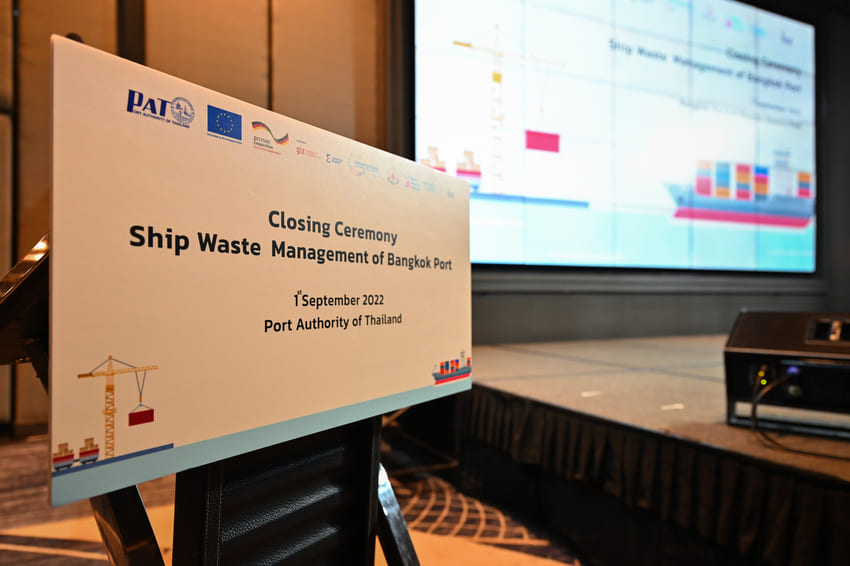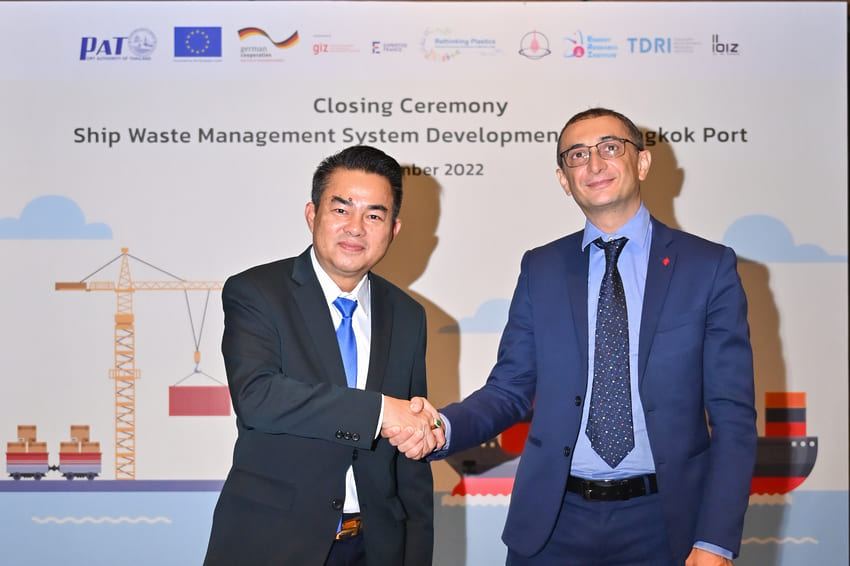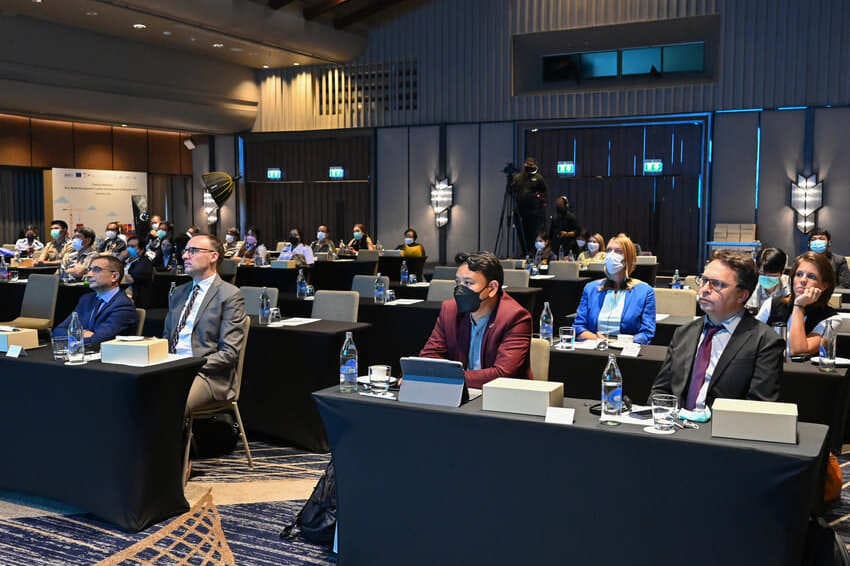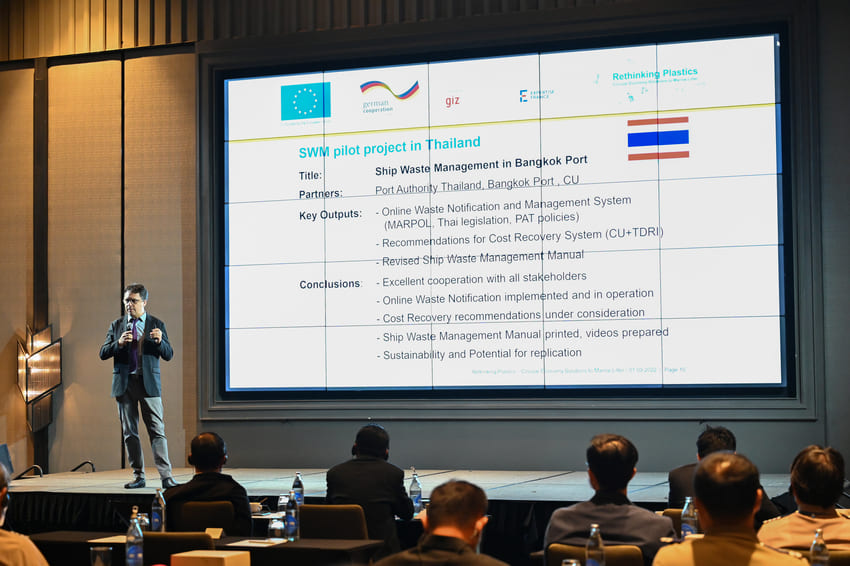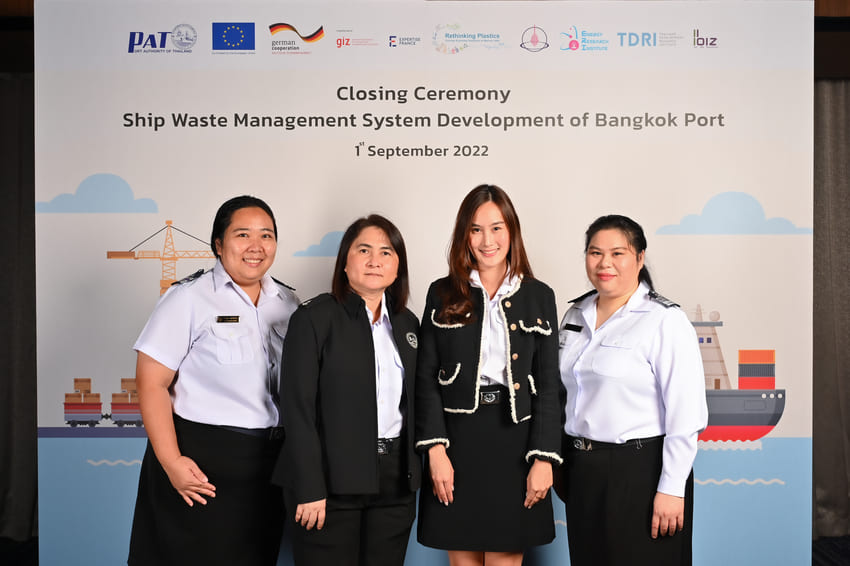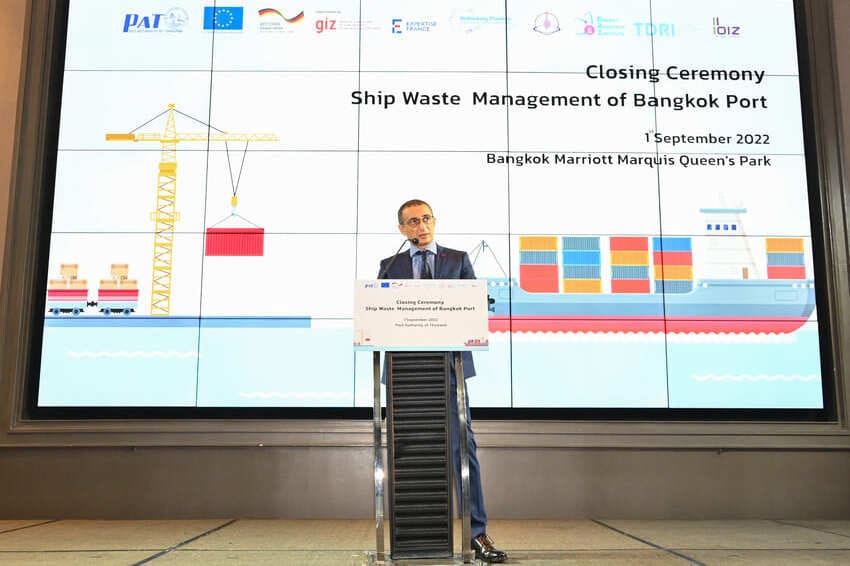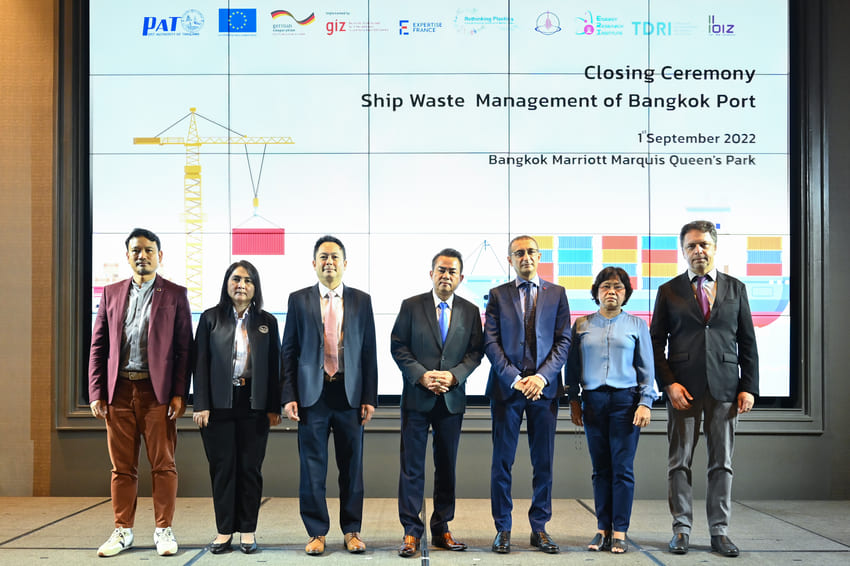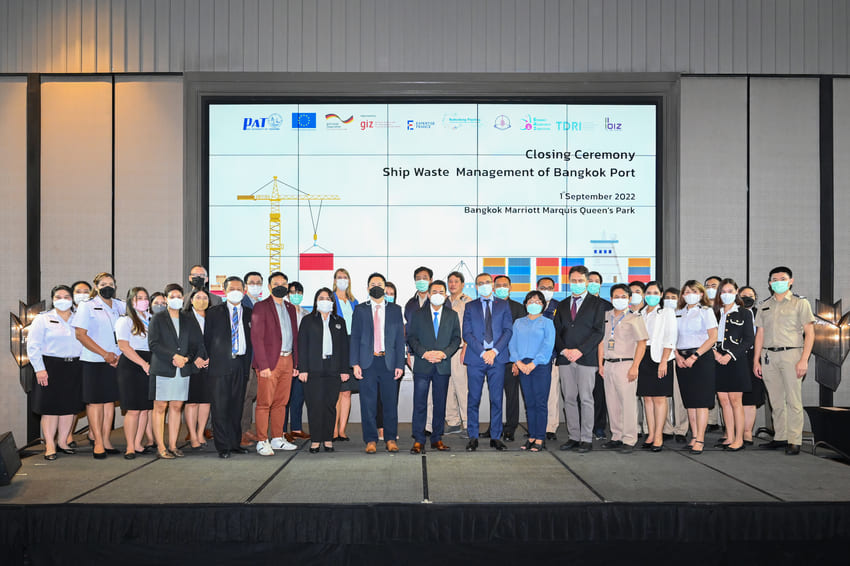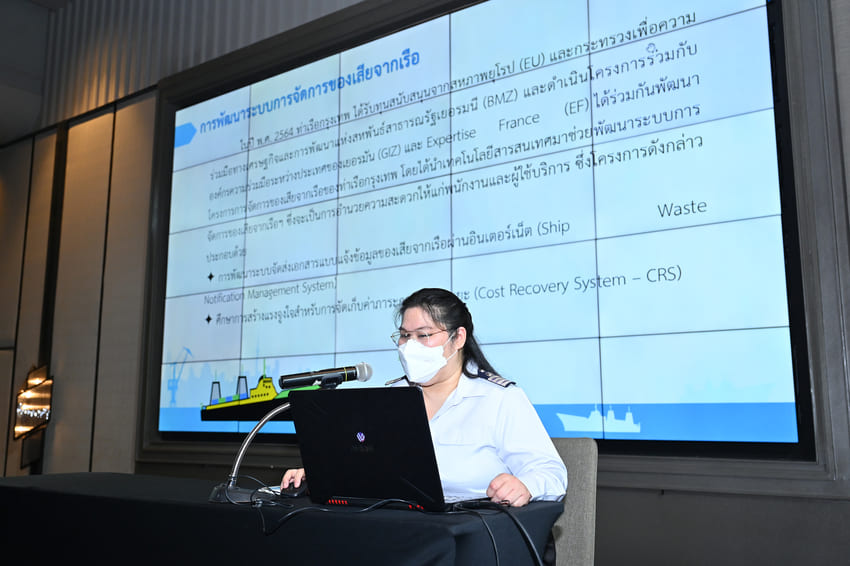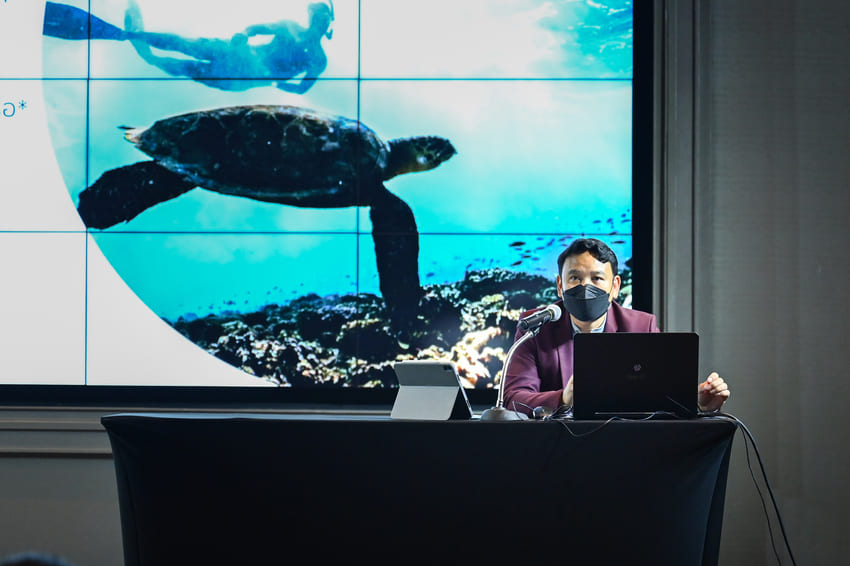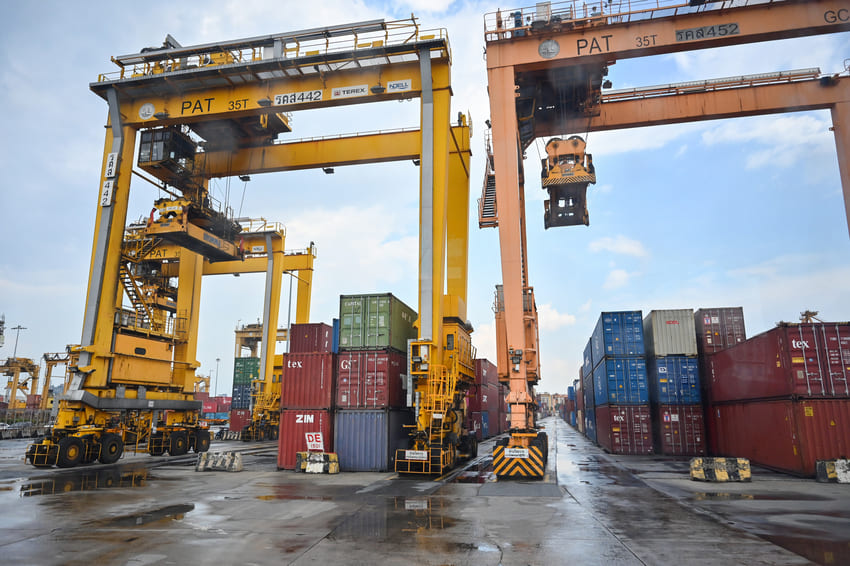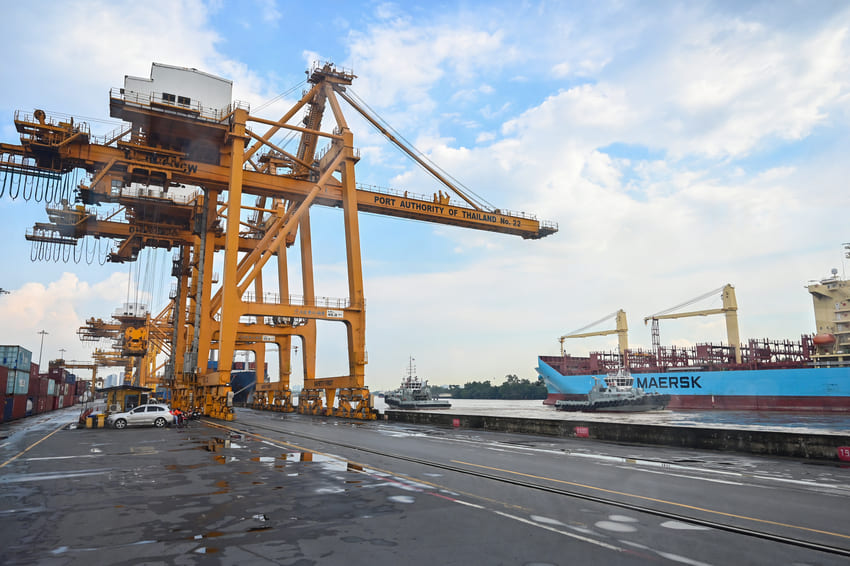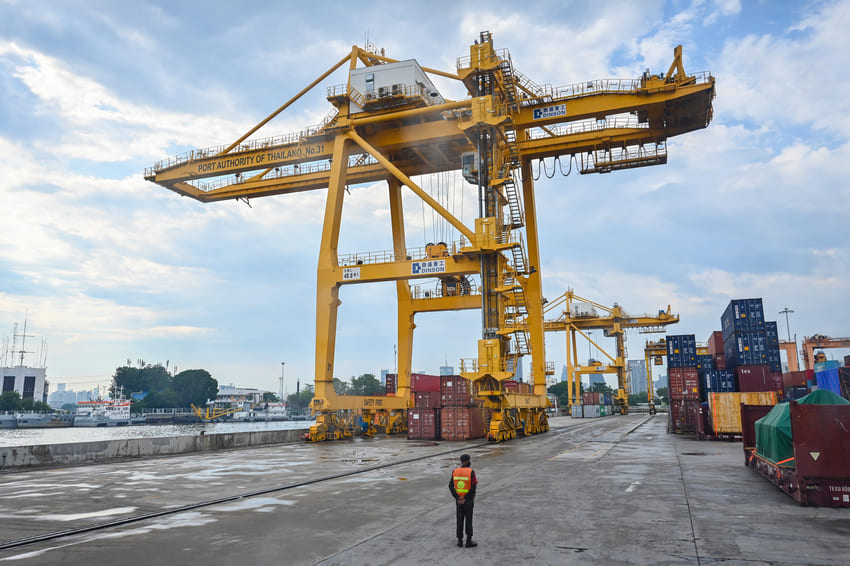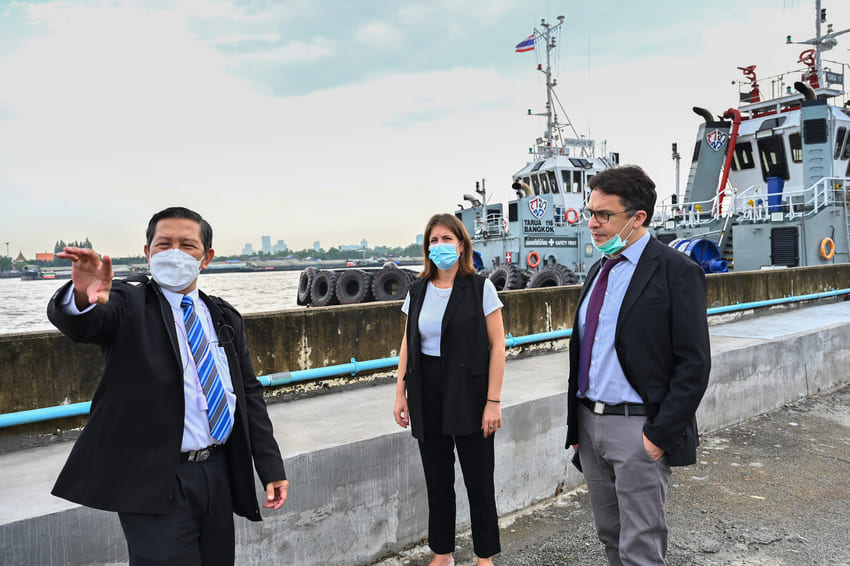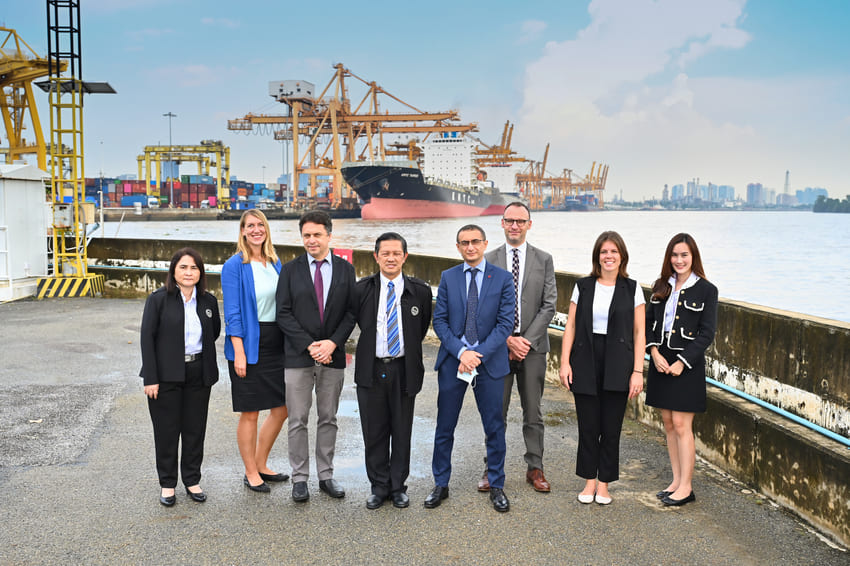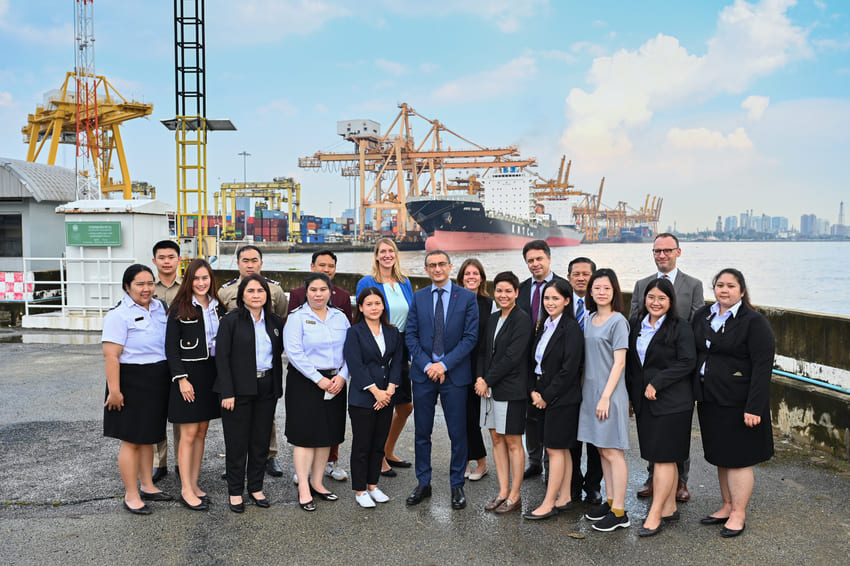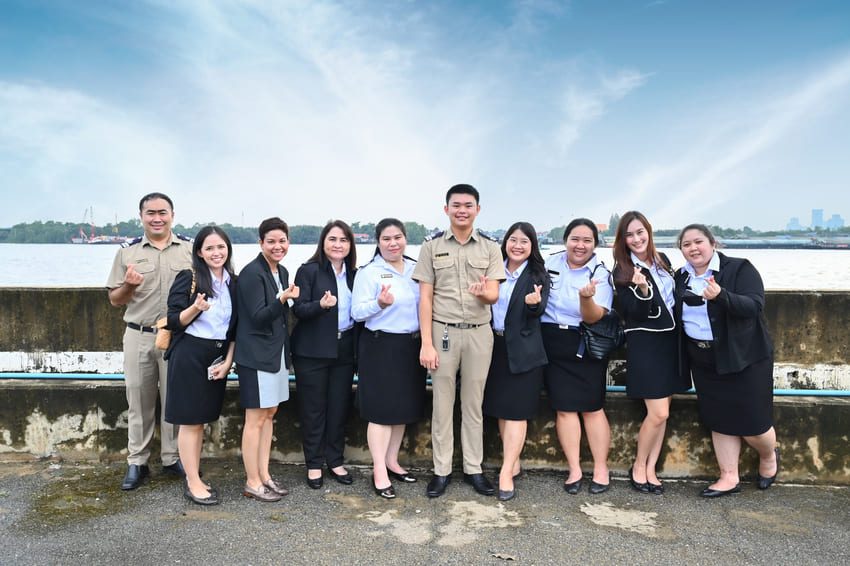Bangkok Port: New Online System for Better Ship Waste Management
Bangkok, 1 September 2022 - Waste dumping into the oceans, How can we stop? Thailand is amongst the countries with the biggest amount of plastic waste leakage into the oceans worldwide. While most marine litter comes from land, marine activities such as increasing ship traffic also contribute to the increasing amounts of litter in the ocean for example through illegal dumping. In the past two years, the Port Authority of Thailand and the project “Rethinking Plastics – Circular Economy Solutions to Marine Litter” project, funded by the European Union and the German Government and implemented by the Deutsche Gesellschaft für Internationale Zusammenarbeit (GIZ) GmbH and Expertise France, took steps forward to implement solutions against illegal ship waste discharge by improving the ship waste management system at Bangkok Port. The pilot activity implementation in Bangkok Port also included Chula Unisearch, Energy Research Institute of Chulalongkorn University, Thailand Development Research Institute (TDRI) and 1st Biz Solution company limited.
Together, the partners assessed waste management regulations and services in the port and designed and implemented an online Ship Waste Notification and Management System (WNMS). It requires ships to notify the amounts of waste transported by the ship calling the port before arrival, facilitating waste handling and inspection procedures at the port and also improving waste data collection under supervision of the port. On 1st September, the partners publicly presented the new online system and other results during the Closing Ceremony of their joint activities at Sala Thai Ballroom, 5th Floor, Bangkok Marriott Marquis Queen's Park and Bangkok Port. The event gathered more than 60 participants from respective sectors, interested in solutions for a better Ship Waste Management.
Opening the event, ‘Mr. Paolo Zingale from the Delegation of the European Union to Thailand summarized: “It is essential that ships and fishing vessels are able to deliver their waste and cargo residues to port reception facilities instead of dumping them illegally into the sea, where they affect the marine environment. Improved waste management regulations and services in ports, as well as information and training of staff and ships can make a difference to reduce marine litter. In European Union we have introduced several directives with significant effects: the volume of waste delivered to ports increased while its illegal dumping was reduced significantly. I am glad that we worked with an experienced and motivated partner and an important port in Thailand to learn from these experiences and to improve analogue processes and digital tools.”
Within 18 months, the partners developed the WNMS, which was integrated into the existing e-Port platform and is already in use after staff and shipping agents were trained. Via computer, tablet or mobile device ships contact the port before their arrival to communicate which type and how much waste they would like to dispose of and get an online certificate to prove waste disposal. This process saves time and costs for everyone involved.
Moreover, the Ship Waste Management Manual, which describes in detail all aspects of the waste handling and collection system was revised and updated to ensure clear processes and responsibilities. This manual serves as a guide for all vessels and their crew calling at Bangkok Port, ship agents, waste contractors and other service providers, which are all involved in the management of ship waste in Bangkok Port. In addition, the Cost Recovery System (CRS), which ensures that ships pay for waste-related services, was assessed to ensure clear processes.
Mr. Thamsin Sribangpleenoi, Deputy Managing Director, Bangkok Port raised the beneficial aspect of the online system in the welcoming speech: “Adopting the information technology in ship waste notification forms delivery receipts system development facilitates users to receive services quickly and helps collect information of the amount of ship waste each year. It also reduces illegal ship waste dumping into the ocean in the Port Authority of Thailand area.”
Dr. Jakapong Pongthanaisawan, coordinator of the pilot activities from Chulanlongkorn University added: “We had a good cooperation among all the relevant stakeholders in the last months and could provide training and experiences of the pilot project to shipping agencies and other major Thai ports”.
After the closing ceremony, the participants of the event had the opportunity to a site-visit of the vicinity of Bangkok Port to learn more about the Ship Waste Management and Bangkok Port.

